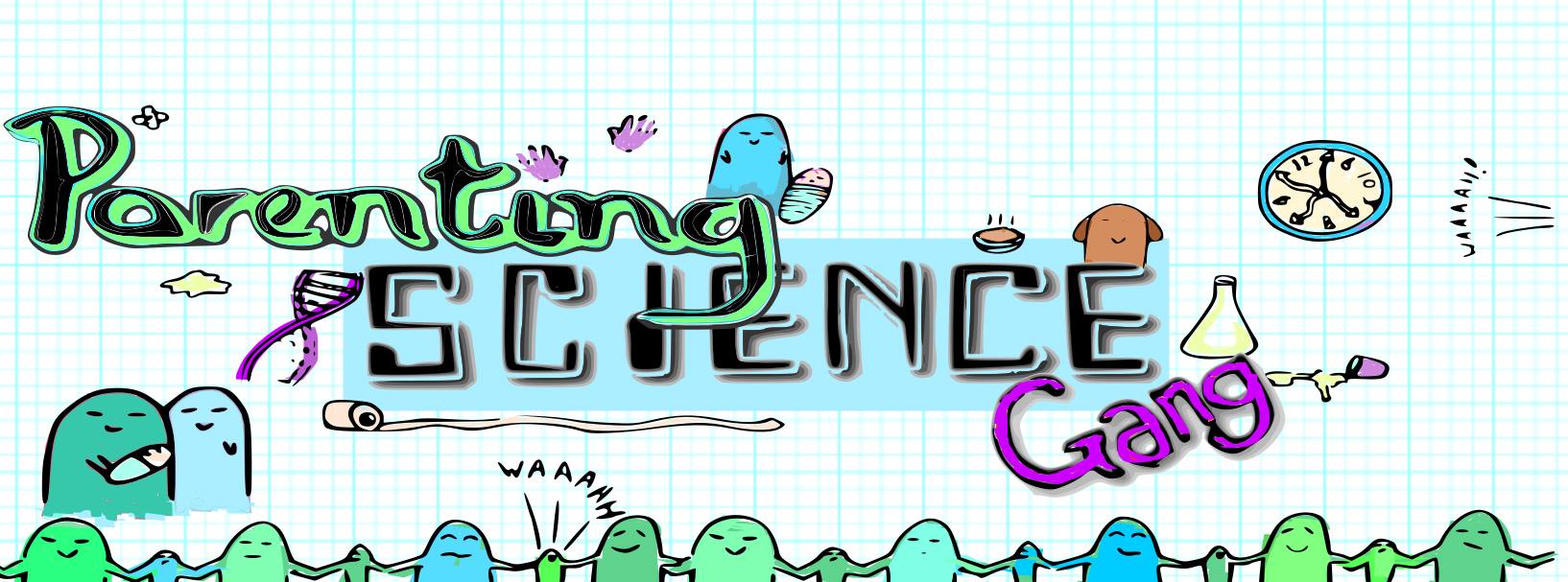Thinking about getting involved with Parenting Science Gang?
What is Parenting Science Gang?
Parenting Science Gang is an innovative citizen science project, funded by Wellcome.
We’re looking for up to eight online parenting communities to take part in 2017/18 – the format works especially well with large Facebook community groups. Could your group be one of them?
What skills do we need?
This project is all about public participation in science; you don’t need a science background to get involved. All that’s required is curiosity and a willingness to get involved.
How will it work?
The project lasts for one year. Your parenting community group members will be invited to volunteer for a ‘Parenting Science Gang’ sub-group, admined by PSG staff and also moderators from your group.
We begin by asking your parenting community to share any questions they’d really like an answer to. We include both the Parenting Science Gang and your main group in this process – we want to cast the net wide.
With help and input from scientists, your ‘Parenting Science Gang’ members explore how they might find evidence to answer those questions, then they select the one they like best and design and run their science experiment for real.
It is completely up to the volunteers what experiments they decide to pursue, so we don’t know what they will be.
The groups may chose an experiment that’s very lab-based. Or is could be more survey-based or observational. Depending on the experiment, they might come back to the main group, asking for volunteers, or for people to fill in surveys.
Each Parenting Science Gang reports back to their larger parenting community, updating on what they’ve been doing, and asking for suggestions or input.
What kind of questions can we ask?
It’s up to you! Anything related to babies / children / parenting.
Previously, groups have considered investigating questions such as:
- Is there any value in breastfeeding past two years?
- Does flexi-schooling change children’s attitudes to school? If so, how?
- Do teething necklaces actually do anything?
- Does giving a bottle have any relationship to the level of bonding with the dad / partner?
What would you ask?
Why are you doing this?
- We may uncover questions which science isn’t answering, but which make a difference to parents. Scientists (well-meaning, well-read scientists) can overlook things that matter to the groups they work with if they aren’t a member themselves.
- Early parenthood can be scary, isolating and confidence-shaking but it’s also a crucial time in the child’s life. Giving parents the tools and, crucially, the confidence to understand and critically evaluate scientific information and whether advice is evidence-based is very powerful.
- Actually designing and running your own experiment gives an unparalleled insight into the scientific process for the volunteers.
- It changes volunteers’ relationship to science – from science being ‘over there’ and done by ‘boffins’ to something they can do themselves.
- Citizen science is the best way to answer questions pertinent to the ‘citizens’.
- Research shows that family members engaging with science in some way, and talking about science in everyday life, has a large effect on children’s future STEM aspirations, especially for girls and other under-represented groups.
What will you provide?
- Online Q&As (most weeks) giving direct access to relevant scientists and experts
- Funding for experiments
- A project team providing admin and online support
- Scientists / labs / experts that the groups can work with to ‘co-produce’ experiments
- Exercises and suggested reading on designing experiments on topics relevant to the group.
- Ethical oversight and organising ethics committee approval where needed.
- Scientists/experts to support the group with experiment planning
Also
- A free weekend-long family friendly workshop. These will have very limited spaces, so probably just 2 or 3 representatives from each group will be able to attend (possibly admins, or others very involved). But they can take back what they have learned to the main groups.
What are we committing to?
Parenting Science Gang is a year long project and it can be a lot of fun – it is also a real science experiment. We will guide and support your group but the important work will be done by you guys.
As a group, you need to be up for:
- Posting and commenting in the Facebook group and taking part in polls
- Asking questions and quizzing the experts in our online Q&A sessions
- Doing some things away from Facebook. This could mean mulling over your thoughts on a question or spending 10 minutes reading an article
- Taking part in planning and carrying out the experiment designed by the group
The experiments will ‘belong’ to the group – you will be the scientists!
Have you done this before?
Yes! We’re currently working with four groups – check out our blog to find out about what they’ve been up to. Before that, our sucessful pilot project created experiments on cloth nappies; read about them at Nappy Science Gang or find out how they got the NHS to change their guidance in this Guardian article by Project Director Sophia Collins.
We want to do this! What now?
If your group is keen to get involved, fill in our application form and tell us a bit about yourself!
If you’ve got questions, please contact us.
